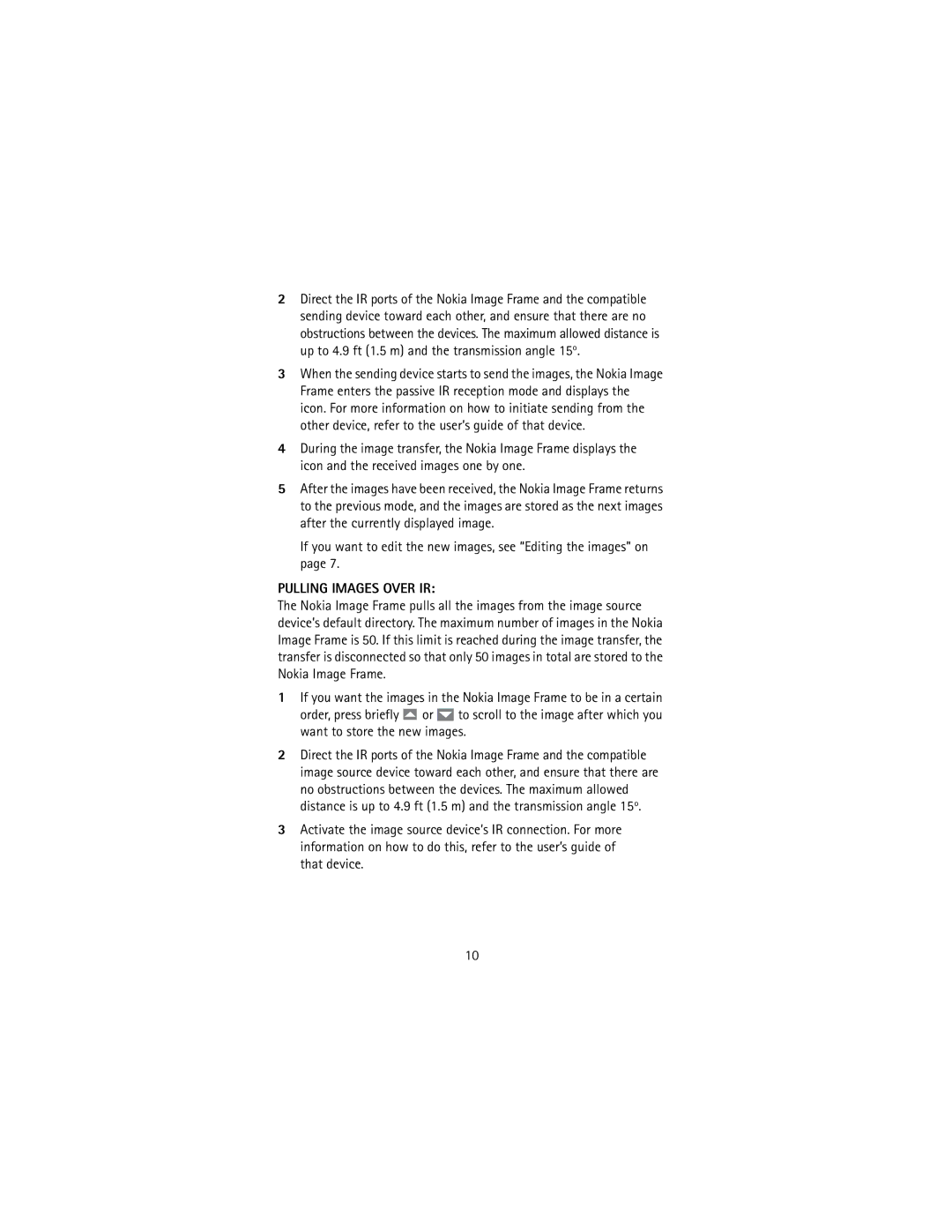2Direct the IR ports of the Nokia Image Frame and the compatible sending device toward each other, and ensure that there are no obstructions between the devices. The maximum allowed distance is up to 4.9 ft (1.5 m) and the transmission angle 15o.
3When the sending device starts to send the images, the Nokia Image
Frame enters the passive IR reception mode and displays the ![]() icon. For more information on how to initiate sending from the
icon. For more information on how to initiate sending from the
other device, refer to the user’s guide of that device.
4During the image transfer, the Nokia Image Frame displays the ![]() icon and the received images one by one.
icon and the received images one by one.
5After the images have been received, the Nokia Image Frame returns to the previous mode, and the images are stored as the next images after the currently displayed image.
If you want to edit the new images, see “Editing the images” on page 7.
PULLING IMAGES OVER IR:
The Nokia Image Frame pulls all the images from the image source device’s default directory. The maximum number of images in the Nokia Image Frame is 50. If this limit is reached during the image transfer, the transfer is disconnected so that only 50 images in total are stored to the Nokia Image Frame.
1If you want the images in the Nokia Image Frame to be in a certain order, press briefly ![]() or
or ![]() to scroll to the image after which you want to store the new images.
to scroll to the image after which you want to store the new images.
2Direct the IR ports of the Nokia Image Frame and the compatible image source device toward each other, and ensure that there are no obstructions between the devices. The maximum allowed distance is up to 4.9 ft (1.5 m) and the transmission angle 15o.
3Activate the image source device’s IR connection. For more information on how to do this, refer to the user’s guide of that device.
10
